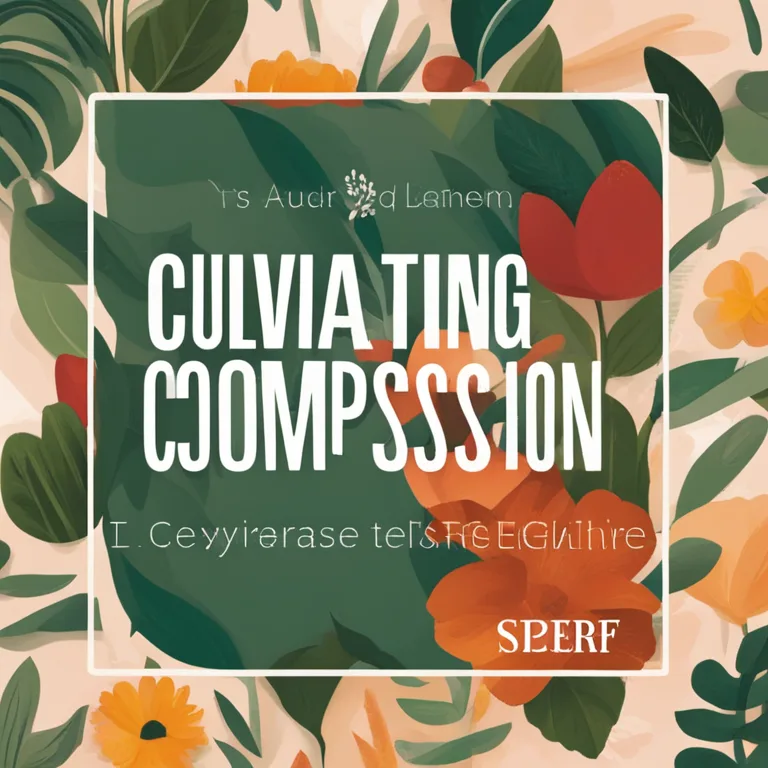
Mindfulness Meditation: A Healing Approach to Eating Disorders
Discover how mindfulness meditation can provide a supportive tool for individuals coping with eating disorders, fostering self-awareness, and promoting recovery.
article by Hina Kurosawa
Mindful Awareness: The First Step
The journey of overcoming an eating disorder is arduous, layered with complexity and deeply personal challenges. Mindfulness meditation, an ageless tradition now underpinned by modern psychological research, presents a nurturing path forward. The essence of mindfulness—being present in the moment without judgment—can become an illuminating force in managing disordered eating behaviors. Let's embark upon a transformative expedition, understanding how these gentle practices can help heal one's relationship with food and self.

The Role of Mindfulness in Treatment
Combining mindfulness with traditional therapeutic approaches has emerged as a promising method for treating a variety of eating disorders. When mindfulness is integrated into a patient's recovery program, it fosters heightened bodily awareness and helps disrupt the cycle of automatic, often harmful, responses to emotional distress. Through focused breathing and awareness exercises, individuals may better perceive their hunger and fullness cues, distinguish between emotional and physical hunger, and approach their eating experiences with a new sense of clarity and composure.

Navigating Emotional Eating
Emotional eating is a common manifestation within eating disorders. Mindfulness teaches the practice of observing thoughts and emotions without being ensnared by them. This perspective enables those struggling with emotional eating to pause and reflect rather than succumbing to impulsive eating. The aim is to nurture a nonjudgmental self-awareness, granting individuals the space to recognize their feelings, and ultimately choose a more nurturing response than reaching for food.

Cultivating Self-Compassion
A cornerstone of the mindfulness meditation framework is self-compassion. For many, eating disorders are intertwined with self-criticism and low self-esteem. Mindfulness meditation shifts this paradigm, encouraging a kind and forgiving dialogue within oneself. As individuals learn to treat themselves with the same kindness they would offer a friend, they often find that their punitive approach to eating and body image softens, creating room for a more positive and sustainable recovery journey.

Structuring a Mindful Mealtime
Engaging in mindfulness during meals allows individuals with eating disorders to experience eating as a sensory-rich and nourishing occasion. By consciously slowing down, savoring each bite, and being fully present with the act of eating, the meal becomes more than just food intake; it turns into an opportunity for mindfulness practice. This approach helps in forming a healthier relationship with food, counteracting tendencies toward mindless eating, and the disconnection from eating signals.
Building a Sustainable Practice
Mindfulness meditation is not a quick fix but rather a skill built over time. It requires consistent practice, whether in therapy sessions, guided groups, or personal time. The key is for individuals to create a mindfulness routine that is supportive and sustainable, allowing space for both introspection and growth. Resources, such as apps or online guides, are readily available to support this personal development, especially as technology continues to evolve with the introduction of AI and virtual reality meditation environments.
The Integration of Mindfulness in Daily Life
The true power of mindfulness meditation in healing from eating disorders lies in its application beyond the meditation cushion. Integrating mindful moments throughout the day—taking deep breaths during stressful times, noticing the beauty in one's surroundings, or being fully present in conversations—can all be transformative. The art of mindfulness can imbue one's entire life with a sense of purpose and balance, influential weapons in the battle against the control of an eating disorder.
Final Thoughts
Mindfulness meditation is a nurturing companion on the road to recovery from eating disorders. It provides a foundation for developing healthier coping mechanisms, increased self-awareness, and a more compassionate self-relationship. As every individual's struggle is unique, it is always recommended to seek professional advice when incorporating new techniques into treatment. Nevertheless, the simplicity and accessibility of mindfulness make it a valuable ally in the quest for well-being.
Published: 1/8/2024
Modified: 1/8/2024
More predictions
Come back here soon to learn more about yourself and your future


Easing Pain with Meditation: Effective Techniques
Discover effective meditation techniques to manage pain and enhance well-being. Learn how to harness the power of mindfulness and visualization for relief.


The Power of Meditation: Enhancing Life with Inner Peace
Discover the profound benefits of meditation techniques for mental clarity, emotional balance, and overall wellness.


Meditation and Depression: A Path to Healing
Discover the potential of meditation as a complementary treatment for depression, delving into how mind-calming practices might offer a beacon of hope for those seeking relief.